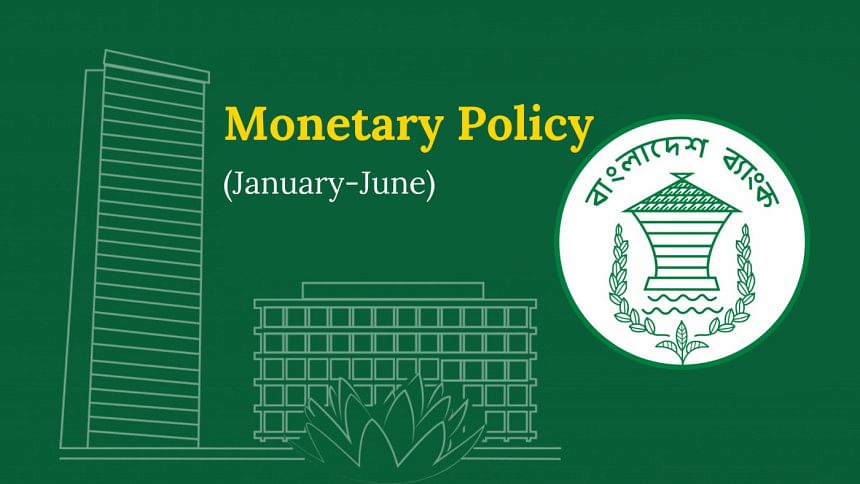Economy poised to encounter substantial hurdles in H2 of FY25: BB

The economy is poised to encounter substantial hurdles in the second half of the 2024-25 fiscal year as it grapples with the pressing need to curb inflation, stabilise the exchange rate, rebuild foreign exchange reserves, and restore public confidence in the banking system, Bangladesh Bank (BB) said today.
"The landscape is further complicated by the growing concern of non-performing loans (NPLs), sluggish economic activity, and a slowdown in deposit and credit growth, all of which present formidable challenges for the banking sector," the central bank stated in its monetary policy for January-June 2025, unveiled this afternoon.
The banking watchdog noted that although Bangladesh's exports and remittances might recover due to the expansion of the global economy, several downside risks persist. These include potential escalations in various regional conflicts, a resurgence in financial market volatility that could adversely affect sovereign debt markets, and an increase in protectionist trade measures.
Despite various monetary and fiscal tightening measures, inflation has remained persistently high, staying above 10 percent for an extended period. However, the impact of these policies is beginning to show, as the point-to-point inflation rate eased in December 2024 and again in January 2025, dropping to 9.94 percent in January from 11.38 percent in November, mainly due to a decline in food inflation.
"With BB's firm policy stance and close collaboration with key stakeholders, inflation is expected to decline further in the near future, making the target range of 7-8 percent achievable," the central bank stated.
The growth rate of the money supply was subdued in the first half of FY25, with private sector credit growth decelerating to 7.3 percent in December 2024, marking the lowest growth rate since October 2021.
Given the global and domestic realities, BB remains committed to a tight monetary policy stance for the second half of FY25. The central bank has decided to maintain the policy rate unchanged at 10 percent for the remainder of the fiscal year.
"Given the current inflation landscape, BB anticipates a decrease in inflation in the coming months," it stated.
This outlook is supported by actions already taken by the monetary and fiscal authorities, continued stability in the exchange rate, ongoing global commodity price moderation, and anticipated output expansion in agricultural products like rice (Boro) and other agricultural commodities.
"BB will continuously monitor inflation trends and adjust interest rates and liquidity measures as necessary," it added.
To bring stability to the foreign exchange market, BB has been implementing a crawling peg exchange rate mechanism, which allows the exchange rate to fluctuate within a certain band.
"This framework is designed to ensure the stability of the exchange rate while preparing for an eventual transition to a more flexible exchange rate system in the near future," the central bank stated.
BB also announced that it has stopped intervening in the exchange market by completely halting foreign exchange sales in the interbank market to support exchange rate stability.
"BB has established a methodology for calculating the Foreign Exchange Spot Reference Exchange Rate (RR), which is prepared and published twice per day," it said.
Prudent exchange rate management under the current system is anticipated to strengthen remittance inflows, stimulate export activities, and augment foreign exchange reserves, the central bank observed.
A series of reform initiatives designed to avert any potential crisis in the banking system and pave the way for long-term economic stability have been undertaken.
"The success of these ongoing initiatives will hinge on their effective implementation, along with forthcoming measures that aim to develop comprehensive solutions for distressed banks in line with the findings of the Asset Quality Review (AQR)," BB said.
Through these efforts, BB seeks to restore sound governance practices and enhance stakeholder confidence in the banking system, thereby fostering a more resilient and trustworthy financial environment for future growth.

 For all latest news, follow The Daily Star's Google News channel.
For all latest news, follow The Daily Star's Google News channel. 






Comments